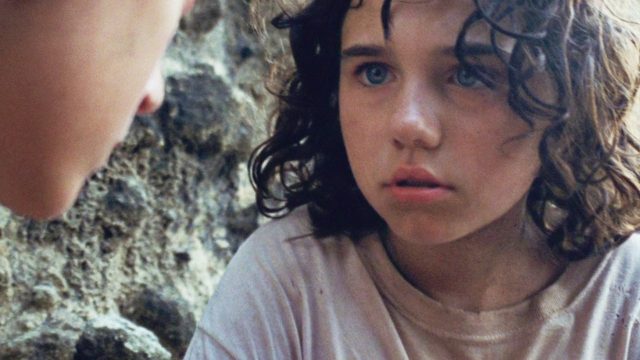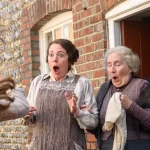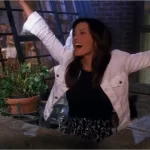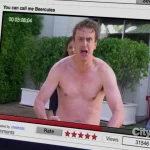Wendy: Grow Up, by David Bax

If you’re looking for fantastic beasts, one place to find them, apparently, is in a Benh Zeitlin film. Eight years after making a splash with Beasts of the Southern Wild, he’s returned with Wendy, an adaptation of Peter Pan that falls somewhere between J.M. Barrie and, unfortunately, Beasts of the Southern Wild. Where that film imagined giant aurochs stalking the bayou, this one has a gentle, enchanting leviathan. But the similarities don’t stop there. Zeitlin’s style, with its montages of handheld close-ups, feels even more self-consciously “arty” and uninspired the second time around. And some of his more intellectually deplorable impulses sadly make a return as well.
Wendy takes place in what seems to be the loosely present day American South where Wendy (Devin France) and her twin brothers, Douglas and James (Gage and Gavin Naquin), live with their mother above the railroad diner she seems to own and operate. They’re a loving family but the children want something more than a future of slinging greasy eggs so it doesn’t take much when Peter (Yashua Mack) beckons to them from a passing train. They jump aboard like old-timey hobos, then jump back off into a river where they paddle to a mysterious island. Here, the children can play and never grow old. Unless, that is, they cease to believe, in which case they age very rapidly and have to go live on the other side of the island. The movie’s climactic narrative gambit takes a page from Lost, setting up a clash between rival camps of castaways.
Though Zeitlin sympathetically portrays the limited hopes and opportunities available to poor kids, there is, once again, the noxious impression that he finds all of this poverty more than a little romantic. And, as if that weren’t condescending enough, the fact that his protagonist this time is a white girl doesn’t stop him from portraying his many black characters as suspiciously close to being, you know, “magical” and “noble.”
Despite his patronizing sentimentality, Zeitlin’s transformation of Wendy from a banker’s daughter to a dirt poor country kid is his most effective stroke of adaptation. When there’s nothing waiting for you in the future, the desire to never grow up takes on a new dimension. Adulthood, in Wendy, is a forfeit to the inevitable.
This is a frustratingly fleeting aspect of the movie, though. Zeitlin is too busy looking like he’s serious to actually take such themes seriously. There’s so little room for genuine, unforced humor that Wendy is occasionally very funny in ways it doesn’t seem designed to be. Even the most benign cuss from one of the young actors–there are some “What the hell”s, for example–immediately recall the Simpsons‘ Lord of the Flies parody.
Unintended comedy like this happens because Zeitlin is trying to adapt the material to his established approach, instead of the other way around. His self-conscious “naturalism”, for instance, doesn’t lend itself to the exposition this kind of fantasy tale requires, so he awkwardly shoves information into the voices of off screen characters or into Wendy’s clumsy narration. Wendy is like someone doing a po-faced, acoustic, coffee shop cover of a silly kid’s song. You’d laugh at that too.




























